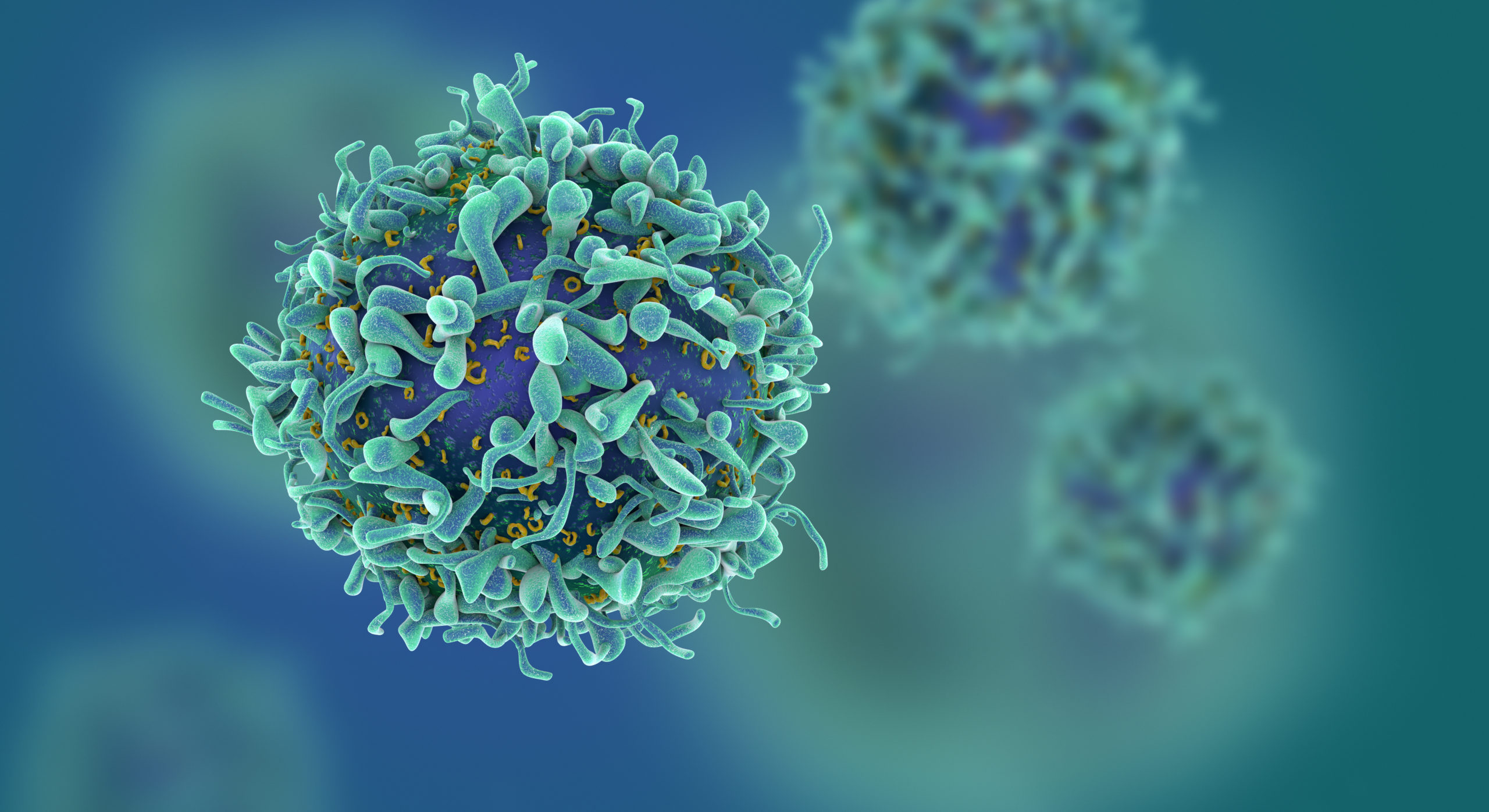Byline: Melissa Rohman
-

Accelerating Cancer Immunology and Immunotherapy Research
The Cancer Immunology and Immunotherapy Initiative at the Robert H. Lurie Comprehensive Cancer Center of Northwestern University is bringing together Feinberg investigators who study immunotherapy to increase collaboration and accelerate high-impact immunotherapy research.
-

Understanding Immunosuppressive Mechanisms of T-Cell Receptors
Investigators have discovered the mechanisms underlying a T-cell receptor’s immunosuppressive function, findings that may improve the development of precision therapeutics for chronic disease, including cancer.
-

Honoring the MD Class of 2022
Feinberg honored the MD Class of 2022 during the medical school’s 163rd commencement ceremony in the Aon Grand Ballroom at Navy Pier, held in person for the first time since 2019.
-

Study Identifies New Therapeutic Target for Most Common Type of Pancreatic Cancer
Northwestern Medicine investigators have discovered a potential therapeutic target for the most common type of pancreatic cancer, according to a study published in Developmental Cell.
-

Morhardt Appointed to Illinois Supreme Court Commission on Elder Law
Darby Morhardt, PhD, LCSW, research professor in the Mesulam Center for Cognitive Neurology and Alzheimer’s Disease and of Preventive Medicine in the Division of Public Health Practice, was recently appointed to the Illinois Supreme Court Commission on Elder Law.
-

Mitochondrial Respiratory Chain Sustains Inflammation
A Northwestern Medicine study published in Nature Immunology has discovered that mitochondria control the activation of a specific protein complex linked to inflammation and the progression of chronic diseases.
-

General Internal Medicine and Geriatrics Becomes Two Divisions
The Department of Medicine’s Division of General Internal Medicine and Geriatrics officially become two divisions: the Division of Geriatrics and the Division of General Internal Medicine.
-

Medical Students Learn How to Apply Arts and Humanities to Medicine
Feinberg’s arts and humanities seminars allow medical students to approach the world of medicine and healthcare from different perspectives and with new skills.
-

Classmates Reunite at Alumni Weekend 2022
More than 700 alumni and guests convened at this year’s Alumni Weekend to reconnect and reminisce with former classmates about their time at Feinberg and learn about the medical school’s latest developments.
-

Mary E. Klotman, MD, to Speak at 2022 Commencement
Mary E. Klotman, MD, dean of the Duke University School of Medicine and vice chancellor for Health Affairs at Duke University, will address graduates, parents and guests at Feinberg’s 163rd commencement ceremony on Monday, May 23.






